Porgy and Bess is a 1959 American musical film directed by Otto Preminger. It is based on the 1935 opera Porgy and Bess by George Gershwin, DuBose Heyward, and Ira Gershwin, which is in turn based on Heyward's 1925 novel Porgy, as well as Heyward's subsequent 1927 non-musical stage adaptation, co-written with his wife Dorothy. The screenplay for the film, which turned the operatic recitatives into spoken dialogue, was very closely based on the opera and was written by N. Richard Nash.
| Porgy and Bess | |
|---|---|
Original poster | |
| Directed by | Otto Preminger |
| Produced by | Samuel Goldwyn |
| Written by | N. Richard Nash |
| Based on | Porgy and Bess by DuBose Heyward |
| Starring | Sidney Poitier Dorothy Dandridge Sammy Davis Jr. |
| Music by | George Gershwin Lyrics by Ira Gershwin Music supervised and conducted by André Previn |
| Cinematography | Leon Shamroy |
| Edited by | Daniel Mandell |
Production company | Samuel Goldwyn Productions |
| Distributed by | Columbia Pictures |
Release date |
|
Running time | 138 minutes |
| Country | United States |
| Language | English |
| Budget | $7 million |
The project was the last for Samuel Goldwyn. Due to its controversial subject matter, the film was shown only briefly following its initial reserved seat engagements in major cities, where it drew mixed reviews from critics. Two months after its release, Goldwyn grudgingly conceded, "No one is waiting breathlessly for my next picture."
In 2011, the film was chosen for inclusion in the National Film Registry of the Library of Congress.
Screenplay
Set in the early 1900s in the fictional Catfish Row section of Charleston, South Carolina, which serves as home to a black fishing community, the story focuses on the title characters: crippled beggar Porgy, who travels about in a goat-drawn cart, and the drug-addicted Bess, who lives with stevedore Crown, the local bully. While high on cocaine supplied by Sportin' Life, Crown kills Robbins after the latter vanquishes him in a craps game; Bess urges Crown to flee. Sportin' Life suggests she accompany him to New York City, an offer Bess declines. She seeks refuge with her neighbors, all of whom refuse to help her. Porgy finally agrees to let her stay with him.
Bess and Porgy settle into domestic life together and soon fall in love. Just before a church picnic on Kittiwah Island, Sportin' Life once again approaches Bess, but Porgy warns him to leave her alone. Bess wishes to stay with Porgy, since he cannot attend the picnic because of his disability, but he urges her to go. After the picnic ends, and before Bess can leave, Crown, who has been hiding in the woods on the island, confronts her. She initially struggles to resist him but Crown rapes her. The others, not knowing exactly what has happened, leave and return to the mainland.
Two days later, Bess returns to Catfish Row in a state of delirium. When she recovers, she remembers what happened. Feeling that she betrayed Porgy, she begs his forgiveness. She admits she is unable to resist Crown and asks Porgy to protect her from him. Crown eventually returns to claim his woman, and when he draws his knife, Porgy strangles him. He is detained by the police merely to identify the body, but Sportin' Life, who has fed Bess cocaine, convinces her Porgy inadvertently will reveal himself to be the murderer. In her drugged state, she finally accepts his offer to take her to New York. When Porgy returns and discovers she is gone, he sets off to find her.
- Sidney Poitier as Porgy
- Dorothy Dandridge as Bess
- Sammy Davis Jr. as Sportin' Life
- Pearl Bailey as Maria
- Brock Peters as Crown
- Diahann Carroll as Clara
- Ruth Attaway as Serena Robbins
- Claude Akins as Detective
- Clarence Muse as Peter
- Ivan Dixon as Jim
The original 1935 Broadway production of Porgy and Bess closed after only 124 performances. A 1942 revival, stripped of all recitative, fared slightly better, as did a subsequent national tour and another revival in 1953, but in financial terms the work did not have a very good track record. Still, there were many who thought it had potential as a film. Otto Preminger was one of several producers, including Hal Wallis, Louis B. Mayer, Dore Schary, Anatole Litvak, Joseph L. Mankiewicz, and Harry Cohn, who had tried to secure the film rights without success. Cohn even wanted to cast Fred Astaire, Al Jolson, and Rita Hayworth and have them perform in blackface, something that the Gershwin estate was vehemently opposed to. For 25 years, Ira Gershwin had resisted all offers, certain his brother's work would be "debased" by Hollywood. On May 8, 1957, he sold the rights to Samuel Goldwyn for $600,000 as a down payment against 10% of the film's gross receipts.
When Langston Hughes, Goldwyn's first choice for screenwriter, proved to be unavailable, the producer approached Paul Osborn, Frances Goodrich and Albert Hackett, Sidney Kingsley, Jerome Lawrence and Robert E. Lee, Clifford Odets, and Rod Serling, all of whom expressed varying degrees of interest but cited prior commitments. Goldwyn finally signed N. Richard Nash, who completed a lengthy first draft by December 1957. For director, Goldwyn sought Elia Kazan, Frank Capra, and King Vidor without success. He finally settled on Rouben Mamoulian, who had directed the original Broadway productions of both the play Porgy and its operatic adaptation.
Nash's screenplay changed virtually all of the sung recitative to spoken dialogue, as in the 1942 stage revival. For example, in the original opera Porgy sings the line "If there weren't no Crown, Bess, if there was only just you and Porgy, what then?", upon which Bess launches into the duet I Loves You Porgy. In the film the line is spoken. The recitatives themselves did not have to really be rewritten, because they do not rhyme, while the words in all the songs do.
Because of its themes of fornication, drug addiction, prostitution, violence, and murder, Porgy and Bess proved to be difficult to cast. Many black actors felt the story did nothing but perpetuate negative stereotypes. Harry Belafonte thought the role of Porgy was demeaning and declined it. So many performers refused to participate in the project that Goldwyn actually considered Jackie Robinson, Sugar Ray Robinson and singer Clyde McPhatter for major roles. Only Las Vegas entertainer Sammy Davis Jr. expressed interest in appearing in the film, and arranged to audition for a role during a party at Judy Garland's home. Ira Gershwin's wife Lee was present and, horrified by Davis' vulgarity, implored Goldwyn, "Swear on your life you'll never use him." The producer, who sneeringly called Davis "that monkey," assured her he would not cast him and offered the role of Sportin' Life to Cab Calloway instead. When Calloway declined, Davis had Frank Sinatra and some of his associates pressure Goldwyn, who finally announced to Davis, "The part is yours. Now will you get all these guys off my back?"
Goldwyn offered Sidney Poitier $75,000 to portray Porgy. The actor had serious reservations about the role and turned it down, but his agent led Goldwyn to believe she could persuade her client to star in the film. She proved to be unsuccessful, and Goldwyn threatened to sue the actor for breaching an oral contract. When Poitier realized his refusal to star in Porgy might jeopardize his appearance in the Stanley Kramer film The Defiant Ones, he reconsidered and grudgingly accepted, assuring Goldwyn he would "do the part to the best of my ability - under the circumstances."
Mezzo Muriel Smith, co-creator (double-cast with soprano Muriel Rahn) of the Broadway title role in Oscar Hammerstein's "Carmen Jones," creator of the role of Bloody Mary in the original London cast of Rodgers and Hammerstein's "South Pacific," whose more important movie ghost-singing assignments included dubbing for Zsa Zsa Gabor in John Huston's original film version of "Moulin Rouge" and for Juanita Hall in 1958's "South Pacific," turned down Samuel Goldwyn's offer to portray Bess, responding, the work ". . Doesn't do right by my people." This statement contradicts another that Samuel Goldwyn's first and only choice for Bess was Dorothy Dandridge, who accepted the role without enthusiasm. Her Carmen Jones co-stars Pearl Bailey, Brock Peters, and Diahann Carroll also accepted roles, but all of them had concerns about how their characters would be portrayed. Bailey warned costume designer Irene Sharaff she would not wear any bandannas because she was unwilling to look like Aunt Jemima.
Completing the primary creative team were production designer Oliver Smith, who recently had won the Tony Award for Best Scenic Design for My Fair Lady, and André Previn and Ken Darby, who would supervise the music. Because Poitier could not sing and the score was beyond Dandridge's range, their vocals would be dubbed, and Goldwyn insisted only black singers could be hired for the task. Leontyne Price, who had portrayed Bess in the 1952 European tour and the acclaimed 1953 Broadway revival, was invited to sing the role on film but responded, "No body, no voice." Adele Addison and Robert McFerrin eventually were hired, but neither received screen credit.
Despite Goldwyn's intention that the music sound as much as it did in the original opera as possible, he did allow Previn and his team to completely rescore and even change the underscoring heard during the fight scenes and at several other moments, as well as in the overture to the film.
A full-cast dress rehearsal was scheduled for July 3, 1958, but slightly after 4:00am a fire destroyed all the sets and costumes, a loss of $2 million. Rumors that the blaze had been started by black arsonists determined to shut down production immediately began to circulate. Goldwyn publicly denounced the story, although studio insiders were certain the fire had been set deliberately. The production was placed on hiatus for six weeks to allow for reconstruction. During this period, director Mamoulian repeatedly clashed with the producer about every aspect of the film, and Goldwyn fired him. William Wyler was willing to step in if Goldwyn could postpone the project for a few months, but the producer opted to replace Mamoulian with Otto Preminger, who had started preparing both Exodus and Anatomy of a Murder but was willing to set them aside for the opportunity to helm Porgy and Bess. Mamoulian was incensed not only that he had been dismissed after eight months of pre-production work, but that he had been replaced by Preminger, who in 1944 had taken over Laura when Mamoulian had ignored all of Preminger's directives as producer of that film. Claiming Goldwyn had fired him for "frivolous, spiteful, or dictatorial reasons not pertinent to the director's skill or obligation," he brought his case to the Directors Guild of America, which notified all its members, including Preminger, they could not enter into a contract with Goldwyn. This prompted the Producers Guild of America to become involved. They insisted Goldwyn had the right to change directors and was not in breach of contract because he had paid Mamoulian in full. When Mamoulian changed tactics and attempted to raise charges of racism against Preminger, he lost any support he had managed to gather, and after three weeks the matter was resolved in favor of Goldwyn.
The change of directors was stressful for Dandridge who, according to her manager, had ended an affair with Preminger when she became pregnant and he insisted she have an abortion. According to the director, he had ended his relationship with the actress because he was neither willing to marry her nor deal with her unstable emotions. In any event, Dandridge was unhappy and lacked self-assurance, especially when the director began to criticize her performance.
Preminger objected to the stylized sets and elaborate costumes - "You've got a two-dollar whore in a two-thousand-dollar dress," he admonished Goldwyn - and wanted Previn to provide orchestrations favoring jazz rather than symphony, but the producer wanted the film to look and sound as much like the original Broadway production he had admired as possible. He grudgingly agreed to allow the director to film the picnic sequence on Venice Island near Stockton, but for the most part Preminger felt his creative instincts were stifled. Only in the area of actual filming did he exert complete control by shooting as little extra footage as possible so Goldwyn couldn't tamper with the film once it was completed.
Principal photography ended on December 16, 1958. Columbia executives were unhappy with the film, particularly its downbeat ending, and one suggested it be changed to allow Porgy to walk. Goldwyn, however, was determined the film should be faithful to its source, going so far as to insist it be described as an "American folk opera" rather than a "musical" in all advertising. He opened the film on a reserved-seat basis at the Warner Theatre in New York City on June 24, 1959, and the Carthay Circle Theater in Los Angeles on July 5. Shortly after opening in Atlanta in early August, the film's run there was cancelled because it angered some black viewers, and although the Atlanta Journal accused Goldwyn of censoring his own film, he pulled the film from several other areas throughout the country as well.
Although the film won one Oscar and one Golden Globe, and its soundtrack album won a Grammy, it was critically and commercially unsuccessful, earning back only half its $7-million cost. It was broadcast on network television only once - Sunday night, March 5, 1967, on ABC-TV (during a week that also saw a rebroadcast of a TV adaptation of Brigadoon, as well as the first telecast of Hal Holbrook's one-man show Mark Twain
Watch movie Porgy And Bess Film online on Amazon
Watch movie Porgy And Bess Film online
Watch The Movie On PrimeA Wednesday Full HD Movie Download
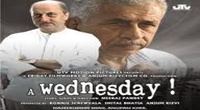
Meri Biwi Ka Jawab Nahin Full HD Movie Download

The Hero-Abhimanyu Full HD Movie Download

Ghar Parivar Full HD Movie Download

Maidan-E-Jung Full HD Movie Download

Rani Roopmati Full HD Movie Download
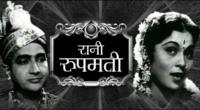
Jaal (1986) Full HD Movie Download
.jpg)
Mera Ghar Mere Bachche (1985) Full HD Movie Download
.jpg)
Jung (2000) Full HD Movie Download
.jpg)
Loaded Full HD Movie Download

Crime Story Full HD Movie Download

Bandya Ani Baby Full HD Movie Download

Khaidi Inspector Full HD Movie Download
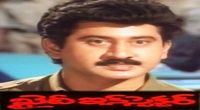
International Don Full HD Movie Download
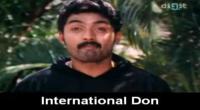
Kalpana Full HD Movie Download
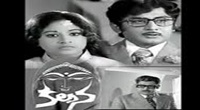
Bat Hunter Full HD Movie Download

Steamboat Bill Jr. Full HD Movie Download
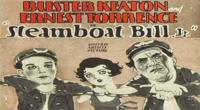
Eenati Bandham Yenatido Full HD Movie Download

Banamati Full HD Movie Download

Maha Manishi Full HD Movie Download
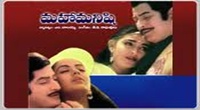
Shuddh Desi Romance (2013) Full HD Movie Download
.jpg)
Download latest Movie from bollywood
- 1> baaghi 3
- 2> THE SKY IS PINK MOVIE FULL STORY AND REVIEW
- 3> Luka Chuppi
- 4> TO ALL THE BOYS I’VE LOVED BEFORE
- 5> Kabir Singh
- 6> Street Dancer 3D
- 7> Simmba
- 8> Gone Girl
- 9> The Girl Who Lived
- 10> Ludo
- 11> DILWALE DULHANIA LE JAYENGE
- 12> GUILTY
- 13> The Godfather
- 14> Adventures of Rusty
- 15> Sooryavanshi
- 16> Satyameva Jayate 2
- 17> Thappad
- 18> Bhool Bhulaiyaa 2
- 19> KGFChapter 2
- 20> Mardaani 2
- 21> Pinjar
- 22> Shivaji maharaj
- 23> Ek Villian 2
- 24> Hungama 2
- 25> Divergent
- 26> Mumbai Saga
- 27> The Internship
- 28> HIT (telugu)
- 29> Panga
- 30> The perfect date
- 31> 16 December
- 32> Gopala Gopala (Telugu)
- 33> Brahmastra
- 34> Gangubai Kathiawadi
- 35> Manmadhudu
- 36> Nenu local
- 37> Mahanati
- 38> Shatamanam bavathi
- 39> Lagaan
- 40> After
- 41> MOM
- 42> Shamshera
- 43> Raguvaran BTech
- 44> Khakee
- 45> The villain
- 46> OM
- 47> Mr. perfect
- 48> Bueatifull mind
- 49> Hichki
- 50> Gabbar Singh
- 51> Jogi
- 52> Before Sunrise
- 53> Before Sunset
- 54> Before Midnight
- 55> The Big Bull
- 56> Top Gun: Maverick
- 57> The Purge
- 58> The Sky is Pink
- 59> Laxmmi Bomb
- 60> Sadak 2
- 61> Sufna
- 62> Prithviraj
- 63> PK
- 64> Coolie No 1(2020)
- 65> Black Widow
- 66> Dear Zindagi
- 67> Dil Bechara
- 68> PHIR HERA PHERI
- 69> WAR
- 70> Dostana
- 71> RRR: Roudram Ranam Rudhiram
- 72> Maidan
- 73> Dabbang 3
- 74> Chhalaang
- 75> life as we know it
- 76> SherShaah
- 77> Sandeep Aur Pinky Faraar
- 78> Event Horizon
- 79> 83
- 80> Radhe: Your Most Wanted Bhai
- 81> Gunjan Saxena: The Kargil Girl
- 82> Mr India
- 83> Vivah
- 84> Anokha Bandhan
- 85> Ghost
- 86> Bhoot: Part One - The Haunted Ship
- 87> Haseen Dilruba
- 88> Laal Singh Chaddha
- 89> Qismat
- 90> Rajput
- 91> Drive
- 92> Dil Chahta Hai
- 93> Dil Ki Baazi
- 94> Dil Ka Rishta
- 95> Teesri Manzil
- 96> Dil
- 97> Love Aaj Kal
- 98> Khaali Peeli
- 99> Bunty Aur Babli 2
- 100> Atrangi Re
- 101> Gulabo Sitabo
- 102> Jodi
- 103> Suraj Pe Mangal Bhari
- 104> Deewana
- 105> Attack
- 106> Sardar Udham Singh
- 107> Toofan
- 108> THE LOVEBIRDS
- 109> Jersey
- 110> Ginny Weds Sunny
- 111> Thalaivi
- 112> Shiddat
- 113> Angels vs Zombies
- 114> Koi Mil Gya
- 115> Thank God
- 116> Bhuj: The Pride of India
- 117> Hum Aapke Hain Kaun
- 118> The Platform
- 119> Bird Box
- 120> Roohi Afzana
- 121> Torbaaz
- 122> Nikamma
- 123> World War Z
- 124> Extraction
- 125> Train to Busan
- 126> Life of Pi
- 127> SHAADI MEIN JROOR AANA
- 128> Himmat Aur Mehnat
- 129> To All The Boys: P.S. I Still Love You
- 130> Mimi
- 131> Good Newwz
- 132> Shubh Mangal Zyada Saavdhan
- 133> Raabta
- 134> Harry Potter and the Philosopher's Stone
- 135> Harry Potter and the Chamber of Secrets
- 136> Chhapaak
- 137> War of the Worlds
- 138> Harry Potter and the Prisoner of Azkaban
- 139> Harry Potter and the Goblet of Fire
- 140> MURDER MYSTERY
- 141> Shakuntala Devi
- 142> Bachchan Pandey
- 143> Jayeshbhai Jordar
- 144> Sheer Qorma
- 145> Saina
- 146> 'O' Pushpa I hate tears
- 147> Kedarnath
- 148> MS Dhoni The Untold Story
- 149> Chhichhore
- 150> Badhaai Ho
- 151> Unstoppable
- 152> Oz the Great And Powerful
- 153> The Girl on the Train
- 154> Haathi Mere Saathi 2020
- 155> The Conjuring: The Devil Made Me Do It
- 156> Gandhi Se Pehle Gandhi
- 157> The Song of Scorpions
- 158> Srimanthudu
- 159> Hello Guru Prema Kosame
- 160> Beauty and The Beast
- 161> Black Panther
- 162> Charlie and the Chocolate Factory
- 163> Bole Chudiyan
- 164> Fidaa
- 165> Duvvada Jagannadham
- 166> Bruce Lee: The Fighter
- 167> Hyper
- 168> Yaara
- 169> Red (2020)
- 170> Shivam
- 171> That Is Mahalakshmi
- 172> Nishabdham
- 173> Aashram 2020 web series
- 174> Laxmii
- 175> Mismatched
- 176> STUDENT OF THE YEAR 2
- 177> NAIL POLISH
- 178> Ramprasad Ki Tehrvi
- 179> KAAGAZ
- 180> 12 o Clock
- 181> The Power
- 182> bolo hau
- 183> Tribhanga
- 184> JAMUN
- 185> Madam Chief Minister
- 186> Maasaab
- 187> Aadhaar
- 188> Tanhaji
- 189> Bhaagi 3
- 190> Bhootnath
- 191> MALANG
- 192> Jai Mummy Di
- 193> Haathi Mere Saathi 2021
- 194> Shakeela
- 195> Unpaused
- 196> Annayya
- 197> Vamsoddharakudu
- 198> Mrugaraju
- 199> Narasimha Naidu
- 200> Sankranti
- 201> Manasu Maata Vinadhu
- 202> Anjaane
- 203> Apaharan
- 204> Bachke Rehna Re Baba
- 205> Bewafaa
- 206> Roohi
- 207> Radhe
- 208> Zindagi Khoobsoorat Hai
- 209> Yeh Mohabbat Hai
- 210> Yeh Kya Ho Raha Hai?
- 211> The Tomorrow War
- 212> DehradunDiary
- 213> Meri Shaadi Karaoo
- 214> Matruu Ki Bijlee Ka Mandola
- 215> No One Killed Jesica
- 216> Aag Ka Goola
- 217> Eight Million Dollars
- 218> Three Hundred
- 219> Cats and Dog
- 220> Decoy
- 221> Gold Rush
- 222> You Have Got Mail
- 223> Final Destination three
- 224> Tofan
- 225> Jungle
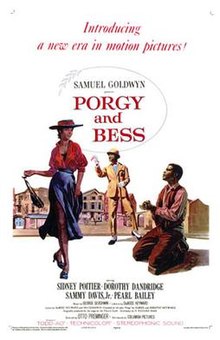 Story of movie Porgy And Bess Film :
Story of movie Porgy And Bess Film : 